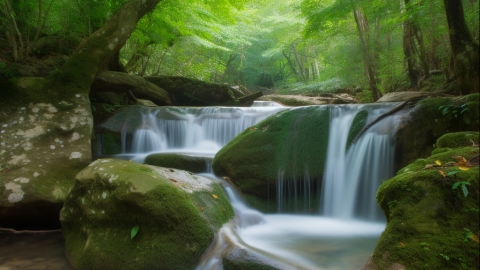Can washing your face with wild mountain spring water lead to a brain-eating amoeba infection?
The term "brain-eating amoeba" usually refers to amoebas. Generally speaking, if the wild mountain spring water is clean and not contaminated by amoebas, using it to wash your face usually won't lead to an amoeba infection. However, if the wild mountain spring water has already been contaminated, washing your face with it may result in infection. Detailed explanations are as follows:

If the wild mountain spring water is relatively clean and not contaminated by amoebas, using it for washing your face typically won't cause an amoeba infection. This kind of pure spring water mostly originates from deep groundwater or unpolluted highland streams. During the process of natural filtration and circulation, it avoids environments rich in humus and other substances that promote amoeba growth, so the water doesn't contain pathogenic amoebas or their cysts. When washing your face, the water only contacts the surface of the skin and doesn't pose a risk of pathogen invasion, making it relatively safe to use.
However, if the wild mountain spring water has already been contaminated, washing your face with it might lead to infection. When there are accumulations of decaying organic matter or animal feces near the spring water, it easily becomes a breeding ground for amoebas. During the process of washing your face, especially if water accidentally enters the nasal cavity, amoebas may enter the body through the nasal mucosa, invade the central nervous system along the olfactory nerve, and cause severe diseases such as primary amoebic meningoencephalitis, which poses a significant threat to health.
When engaging in outdoor activities, one should treat mountain spring water cautiously. Avoid using untreated spring water for washing your face, rinsing your mouth, or drinking. It's best to carry potable water that has been purified. If it's necessary to use mountain spring water, it should be boiled, treated with chemical disinfectant tablets, or filtered using a professional water filtration device before use. When washing your face, try to avoid getting water into your nasal cavity as much as possible to minimize the risk of infection. If symptoms such as headache, fever, or nausea occur after contact with suspicious water sources, seek immediate medical attention.





